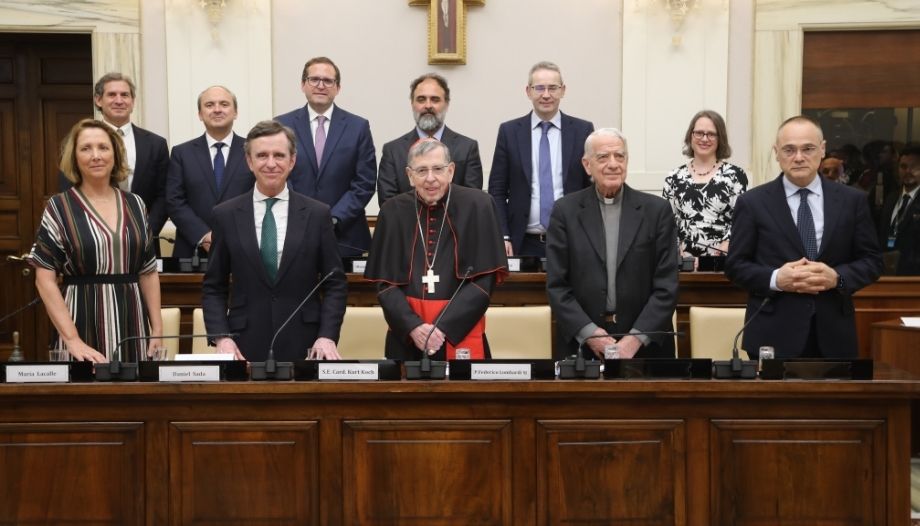The award ceremony of the Open Reason AwardsHe was accompanied by the president of the Joseph Ratzinger/Benedict XVI Vatican Foundation, Fr. Federico Lombardi, S.I., and the rector of the Francisco de Vitoria University (UFV), Daniel Sada.
Cardinal Koch stressed that open reason "is not a step backwards, but an act of intellectual courage. He added: "Only a truly open reason is capable of generating unity in a world marked by polarization and relativism". The event was moderated by María Lacalle, director of the Institute. Open Reason and Vice Rector for Faculty and Training Model of the UFV.
Winners of the VII edition
Six projects from Spain, the United States, Colombia and Chile have been distinguished by the Jury among 410 proposals from 63 universities around the world.
Among the four winners of this VII edition of the Awards is José María Torralba (University of Navarra), in the category of Teaching, for '.The Great Books Program of the University of Navarra'.
David Thunder, also from the University of Navarra, for 'The Polycentric Republic: a theory of civil order for free and diverse societies'. A proposal for an alternative civil order to the modern state, based on free and diverse associations.
Angela Franks (St. John's Seminary, USA) was also the winner, for 'Body and identity: a history of the empty self,'. An intellectual history of the contemporary identity crisis from a theological and philosophical perspective.
And also Juan Eduardo Carreño (Universidad de los Andes, Chile), for 'Thomistic philosophy in the face of evolutionary fact. An integration of the thought of Thomas Aquinas with the discoveries of evolutionary biology'.
Honorable mentions
In addition, the Jury awarded honorable mentions to Pablo Lopez Raso (Universidad Francisco de Vitoria) for 'Insolente belleza: una propuesta de apreciación del arte contemporáneo' (Insolent beauty: a proposal for the appreciation of contemporary art). And Santiago Bellomo (Universidad Austral, Argentina), for 'Educación aumentada. Challenges of education in the age of artificial intelligence'.
The awards, endowed with 100,000 euros, recognize research and teaching programs that combine scientific knowledge with a profound reflection on the human being, truth and meaning.
Continuing to promote knowledge
Cardinal Koch also remarked that the Open Reason Awards contribute to the construction of a culture of encounter by uniting technical knowledge with humanistic wisdom. In this sense, he encouraged the award winners and their universities to continue promoting knowledge that does not renounce the big questions. And that contributes to the reconciliation between faith and reason, between science and humanity.
Torralba: Open Reason Education
Professor of Philosophy José María Torralba, consulted by Omnes, has stated that 'in reality, the award is not to me, but to the '.Great Books Program of the University of Navarra', which is made up of 20 professors. Although I am the coordinator of the program, and the one who presented the candidacy, and that is why I have come to Rome to collect it."
"This award is important because of its prestige; it has been awarded for seven editions. The final Jury that decides is prestigious, and in this sense it is a great endorsement of the Great Books project, which is now ten years old, and the work that has been done."
"It is also appreciated that the project promotes an Open Reason education. What does open reason mean," Torralba points out. "It is a concept of Benedict XVI. The subjects of study, the teaching, is not done in an isolated way, focusing only on one field of knowledge or one discipline. But open to the connection of particular sciences with philosophy and theology".
The Great Books Program developed in Navarra, which each year has 650 students taking it, taught by more than 20 professors, adds the professor, "is awakening more and more interest in other universities, in Spain, Europe and Latin America".







